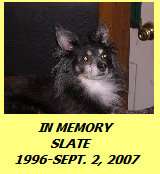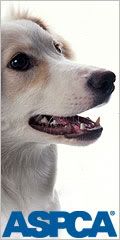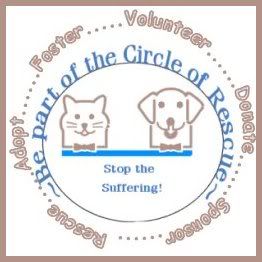
Don't forget to keep all of your furry friends safe this Valentines Day.

Here are some tips from the
ASPCA to help keep your pets' Valentines as much fun as yours.
ASPCA Guide To A Pet-Friendly Valentine’s Day: Romance Lovers, Protect Your Pets!
As Valentine’s Day approaches, sweethearts everywhere are searching far and wide for that perfect gift to give to loved ones during this romance-filled time of year—roses, chocolates & candy, a candle-lit dinner with wine, perhaps even a new four-legged friend. But the ASPCA wants to caution you that some traditional Valentine’s Day gift and celebration ideas should come with a warning for your furry or feathered companions.
Don’t Let Your Animals Eat Chocolate
Chocolate, a popular gift around this time of year, can be dangerous to pets. A ten pound dog can come away with vomiting/diarrhea, hyperactivity, seizures and an abnormally elevated heart rate from just two ounces of baking chocolate or 20 ounces of milk chocolate. Cats are sensitive, too, but they don't normally eat large enough amounts of chocolate to cause anything worse than gastrointestinal upset. Chocolates also contain fat and caffeine-like substances known as methylxanthines, which can potentially cause the above symptoms and, in severe cases, death.
Put Alcoholic Beverages Safely Away
Many a curious pet has explored an alcoholic beverage left in a glass. If ingested, this could cause vomiting, diarrhea, a lack of coordination, central nervous system depression, tremors, difficulty breathing, metabolic disturbances and coma. Alcohol can even cause death from respiratory failure if a large enough amount is ingested. It is important to keep in mind that animals are not only smaller than us, they often metabolize substances differently. This makes pets more susceptible to alcohol in smaller amounts. We advise not allowing pets to have any access to alcoholic beverages or other alcohol-based products.
Don’t Let Your Animals Ingest Sugar Substitute
Another potential hazard is gum or candy sweetened with the sugar substitute xylitol, which can cause a fairly sudden drop in blood sugar (known as hypoglycemia). This can result in depression, loss of coordination and seizures. “If you suspect your dog may have eaten products containing any of these harmful ingredients, please seek veterinary treatment immediately,” says Dr. Steven Hansen, veterinary toxicologist and Vice President of the ASPCA Animal Poison Control Center.
Keep Holiday Flowers Out of Reach
Many varieties of lilies are highly toxic to cats, so if these are your Valentine’s flower of choice, make sure your cats can’t get near them.
Other potentially poisonous flowers may include:
- tulips (especially if potted, as the bulbs are the most toxic)
- amaryllis (same as tulips)
- Calla lily (can cause intense oral and gastrointestinal irritation)
- daisies
- chrysanthemums
- baby's breath
Safer alternatives might include:
- African violet
- asters
- camellia
- Canna lilies (they are not of the genus Lilium)
- jasmine
- orchids
Check out our toxic plant list to be sure that your choice of flower or plant is a safe one. Much of the information you’ll find there is pertinent for birds, as well as dogs and cats.
Keep Your Pets Away from Thorns
Pet owners are urged to take caution with roses and other flowers containing thorns, which could be potentially harmful to pets if played with, bitten, stepped on or swallowed. “It’s all too easy for pets to step on thorny stems that fall to the ground as a flower arrangement is being created,” says Dr. Louise Murray, Director of Medicine for the ASPCA’s Bergh Memorial Animal Hospital. “Be sure to keep your pets clear of your workspace as you arrange your beautiful flowers, since they can develop serious infections from thorn punctures.”
Don’t Leave Candles Burning
Candlelit dinners are romantic, just don’t leave the room while the flames are still burning. Let curious paws and beaks find other, safer things to play with.
Clean Up After Wrapping and Decorating
Make sure to keep balloons, cellophane, tape, ribbons, bows and other wrapping items or festive decorations out of your pets’ reach. Choking on any of these items, or ingesting them, may prove hazardous to your pet’s health.
The Right Way to Give Pets as Presents
It may seem very tempting to give your loved one a new puppy or kitten for Valentine’s Day. They sure are cute and cuddly! But the ASPCA wants to remind you that bringing a new companion animal into your home is a big decision. Why not present your loved one with a gift certificate to adopt from your local shelter, or take a trip to the shelter together? You might just make another love match.





























No comments:
Post a Comment